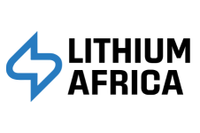China and Bolivia Enter Lithium Resource Agreement
The President of Bolivia, Evo Morales has signed an agreement with a Chinese investment company (CITIC) to explore the potential for economic lithium reserves in the Salar de Coipasa.
The President of Bolivia, Evo Morales has signed an agreement with a Chinese investment company CITIC Group to explore the potential for economic lithium reserves in the Salar de Coipasa. The salar is the second largest brine in Bolivia and is located 20 km north of the world’s largest lithium resource, the Salar de Uyuni, situated in the southwestern corner of the country, near the crest of the Andes. Earlier this month the President visited China on a strategic mission, promoting a series of ‘mega project’ advancements endeavoring to diversify the nation’s economy including investments in mining projects for iron ore and lithium.
The current Bolivian administration has been involved in discussions and negotiations with a series of potential investment interests to become a partner for Bolivia’s lithium resource. At the end of last month, the government agreed to set up a joint venture in a bid to pursue cooperation on the lithium battery business sector with a state owned enterprise, Korea Resources Corp. (KORES). Last year, Morales and the President of South Korea agreed to a partnership of the development of lithium and other resources. A Memorandum of Understanding (MOU) on the research and development for the industrialization of evaporative resources in the Uyani Salt Flats was signed at the time. Morales has also met with leaders in Japan concerning mining concessions to develop Bolivia’s lithium resources, as well as a geothermal power plant.
Limited risk for Bolivia
The Chinese company will pay for the study to quantify reserves and if the lithium deposit at the Salar de Coipasa meets CITC’s criteria, it will submit a proposal to establish a joint venture for lithium extraction. If the result is negative, the Bolivian government will have no further obligations in the deal.
Administration under fire
Majority support for Morales is waning from some indigenous groups who initially offered solid endorsement for him as the first native president in a state where over 60 percent of the population is indigenous. An emerging set of discontented interests are accusing him of hypocritical policy decisions. Some farming and agriculture industry stakeholders are disappointed with his endorsement for a law allowing for the expansion of genetically modified crop production. Environmental lobbyists believe Morales favors oil and natural gas resource exploration over globally significant tropical rain forests. Further concerns have surfaced about the impacts of mining and the unmitigated risks for the contamination of drinking water sources. This becomes important, as Bolivia is a landlocked nation with no coastal ports and despite improvements since 1990, the country continues to suffer from what is the continent’s lowest coverage levels.
Geopolitical instability
Political instability, ethnic tension, and turbulent social demonstrations plagued Bolivia from 2003 to 2008 against policies intended to export Bolivia’s newly discovered natural gas reserves to lucrative markets in the northern hemisphere. In 2005, the government passed a controversial hydrocarbons law that imposed considerably higher royalties and required foreign firms then operating with risk sharing contingencies to yield all production to the state energy company in exchange for a predetermined service fee. In 2008 higher prices for hydrocarbons and mineral exports produced a fiscal surplus, however, the global recession in 2009 slowed growth. Despite the economic slow down, Bolivia managed to record the highest growth rate in South America that year. The continued rise in global commodity prices during 2010 resulted in the biggest trade surplus in history, but a lack of foreign capital investment in the key sectors of mining and hydrocarbons and higher food prices continue to pose challenges for the land locked country.
National resource development
The Morales administration has made it clear that the state hopes to retain overall ownership and control of lithium resources. Most recently the Bolivian president has agreed with the Chinese leader Hu Jintao to form a senior-level bilateral committee to begin meeting in September aimed to promote the development of Bolivia’s lithium resources.
Multiple challenges and impediments
The question of economic feasibility with Bolivian brine resources has often been the subject of industry and analyst speculation as the lithium concentration at Uyuni is believed to be in the range of 0.05 percent. This compares unfavorably with the brine resource at the world’s largest lithium producer, Sociedad Quimica y Minera (NYSE:SQM) where the Salar de Atacama in Chile is more concentrated to 0.14 percent. The relatively lower concentration in Bolivia effectively reduces the value of the resource for investors as it is more expensive and slower to produce the lithium requiring more evaporation ponds.
The higher concentration of magnesium at Uyuni may also be an impediment for lithium extraction with the mineral estimated in the 10.2 percent range, relative to the Atacama comparable of 6.3 percent. Additionally, the rate of evaporation at Uyuni is estimated 1,300 to 1,700 millimeters per year which places it third behind Atacama’s highest rate of evaporation in the lithium industry at 3,500 millimeters per year.
A political question is Morales’ strong advocacy of potential lithium mining investors to commit to manufacturing lithium batteries in Bolivia, rather than simply extraction of the mineral for production closer to lithium consumers or existing markets. He has repetitively maintained that any international partnership in the lithium industry will be welcomed from nations that are ideologically compatible with his left wing model.
Securities Disclosure: I, Dave Brown, hold no direct investment interest in any company mentioned in this article.





